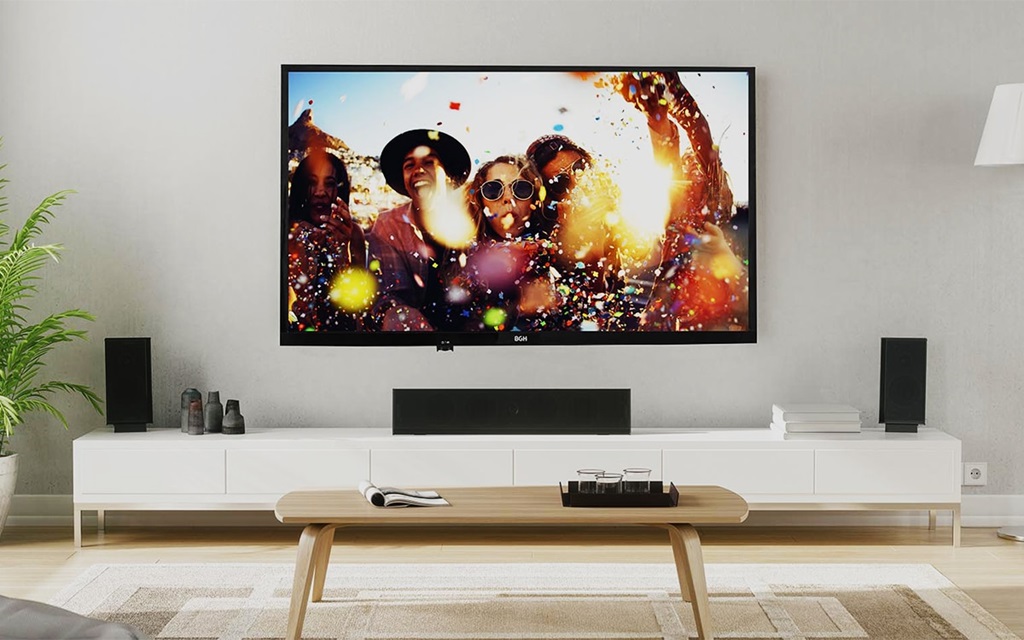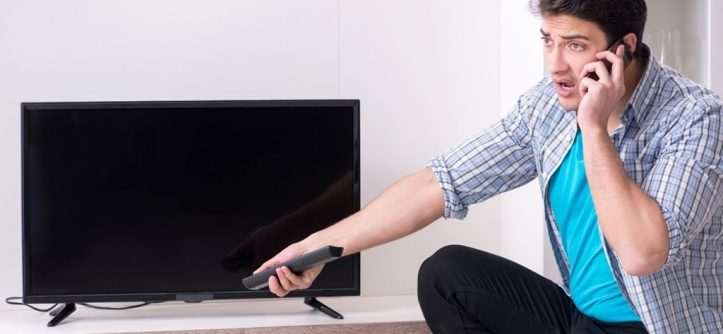In today’s world, TVs have become an indispensable part of our daily lives. They provide entertainment, and news, and even serve as a central hub for smart home devices. However, like any other electronic device, TVs can break down. Understanding the common causes of TV malfunctions and taking proactive steps to prevent them can save you from frustration and costly repairs.
1. Power Surges and Electrical Issues:
One of the most frequent causes of TV failure is electrical surges. These sudden spikes in voltage can overload sensitive components within the TV, leading to permanent damage. To protect your TV from power surges, consider using a high-quality surge protector. This device acts as a buffer, absorbing excess voltage and preventing it from reaching your TV.
Also, be mindful of the electrical outlet your TV is plugged into. Make sure it’s in good condition and not overloaded with other appliances. Loose connections or faulty wiring can also cause electrical problems that can damage your TV.
2. Overheating:
Overheating is another major cause of TV breakdowns. TVs generate heat during operation, and inadequate ventilation can cause this heat to build up to dangerous levels. Ensure your TV has ample space around it to allow for proper air circulation. Avoid placing it in enclosed cabinets or near heat sources like radiators or fireplaces.
Regularly cleaning the vents and dust buildup on your TV can also help prevent overheating. Dust acts as an insulator, trapping heat and impeding airflow. Using a soft cloth or a can of compressed air to gently remove dust can make a significant difference in maintaining optimal operating temperatures. This simple maintenance step is a key aspect of how to make your TV last longer and perform better over time.
3. Physical Damage:
While modern TVs are built to be durable, they’re not invincible. Accidental bumps, drops, or spills can cause physical damage to the screen or internal components. If you have young children or pets, consider placing your TV in a secure location where it’s less likely to be knocked over.
Be careful when cleaning your TV screen. Use a soft, microfiber cloth and avoid applying excessive pressure. Harsh cleaning agents or abrasive materials can scratch the screen or damage the delicate coating.
4. Aging and Wear and Tear:
Like any electronic device, TVs have a finite lifespan. Over time, components can degrade, leading to performance issues or complete failure. While there’s no way to completely prevent aging, taking good care of your TV can help extend its lifespan.
Regularly updating the TV’s firmware can ensure it’s running the latest software and security patches. This can improve performance and address potential vulnerabilities. If you notice any signs of aging, such as dimming picture quality or audio issues, consider seeking professional repair or replacement options.
5. Humidity and Environmental Factors:
Humidity and environmental factors can also impact the longevity of your TV. High humidity levels can cause condensation to form inside the TV, leading to short circuits or corrosion. Ideally, keep your TV in a climate-controlled room with moderate humidity levels. If you live in a humid climate, consider using a dehumidifier to maintain optimal conditions.
Extreme temperature fluctuations can also stress the TV’s components. Avoid placing your TV in direct sunlight or near drafty windows. Maintaining a stable temperature can help prevent issues related to thermal expansion and contraction.
Related: How to choose the right type of TV aerial
6. Manufacturer Defects:
While less common, manufacturer defects can sometimes lead to TV breakdowns. Faulty components or assembly errors can manifest themselves as performance issues or premature failure. If you suspect your TV is suffering from a manufacturer defect, check if it’s still under warranty. Many manufacturers offer warranties that cover repairs or replacements for a specific period. Contact the manufacturer’s customer support for assistance.
7. Improper Use:

Using your TV in ways it wasn’t intended for can also contribute to its breakdown. For example, playing video games or watching high-intensity content for extended periods can put additional strain on the TV’s components. While modern TVs are designed to handle various uses, be mindful of moderation and avoid pushing the TV to its limits.
Additionally, make sure you’re using the correct cables and connections. Using incompatible or faulty cables can cause signal issues or damage the TV’s ports. Refer to the TV’s manual for proper connection instructions.
8. Software Glitches:
While not as common as hardware failures, software glitches can also cause TV problems. These glitches can manifest themselves as frozen screens, unresponsive controls, or unexpected shutdowns. In many cases, a simple power cycle (turning the TV off and on again) can resolve these issues.
If the problems persist, try resetting the TV to its factory settings. This will erase all user data and settings, so make sure to back up any important information beforehand. If all else fails, consider contacting the manufacturer’s customer support for further assistance.
Related: Essential Software Tools Every PC Troubleshooter Needs
9. Neglecting Maintenance:
Neglecting basic maintenance can shorten the lifespan of your TV. Regularly cleaning the TV screen, vents, and remote control can prevent dust buildup and ensure optimal performance. Also, make sure the TV’s firmware is up to date. Firmware updates often include bug fixes and performance improvements that can enhance the TV’s functionality.
By following these tips and taking proactive steps to care for your TV, you can minimize the risk of breakdowns and enjoy many years of reliable performance. Remember, prevention is always better than cure. Invest in a high-quality surge protector, provide adequate ventilation, and handle your TV with care. Regular maintenance and timely software updates can also contribute to the longevity of your TV. If you encounter any persistent issues, seek professional repair or replacement options.
In conclusion
Understanding the common causes of TV breakdowns and taking preventative measures can help you avoid costly repairs and extend the lifespan of your TV. By being mindful of power surges, overheating, physical damage, environmental factors, and proper use, you can ensure your TV remains a reliable source of entertainment and information for years to come.



Leave a Reply